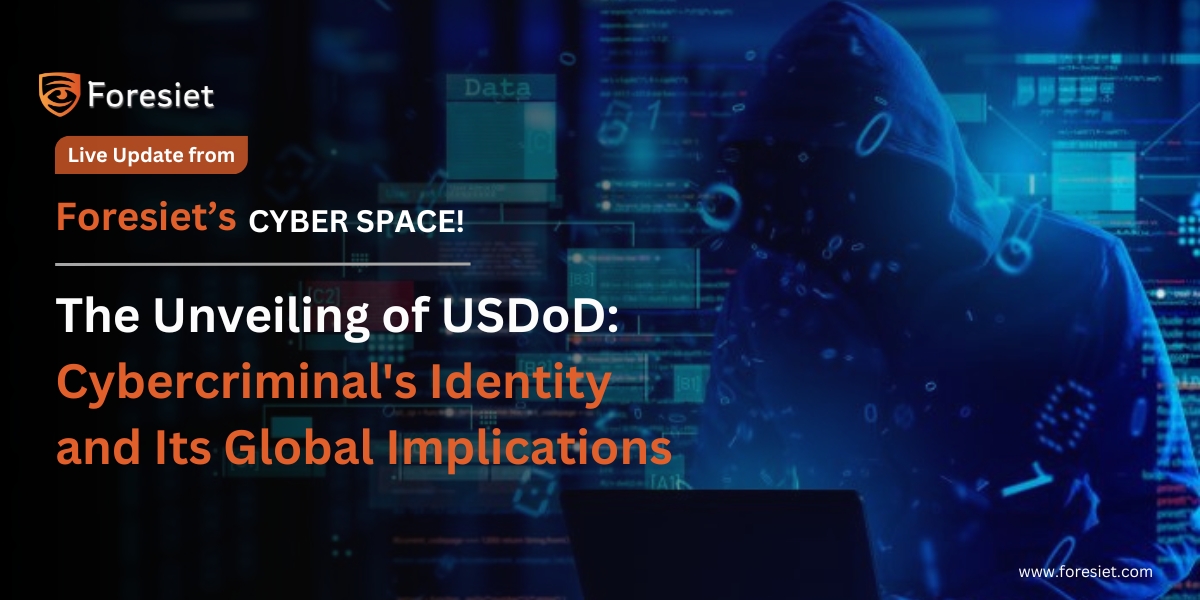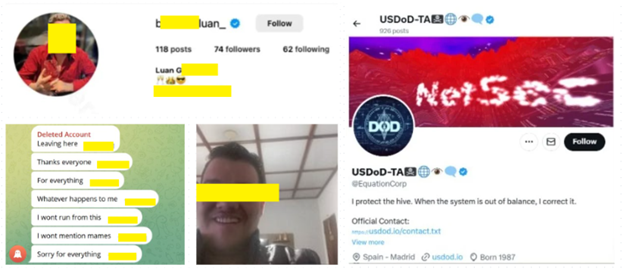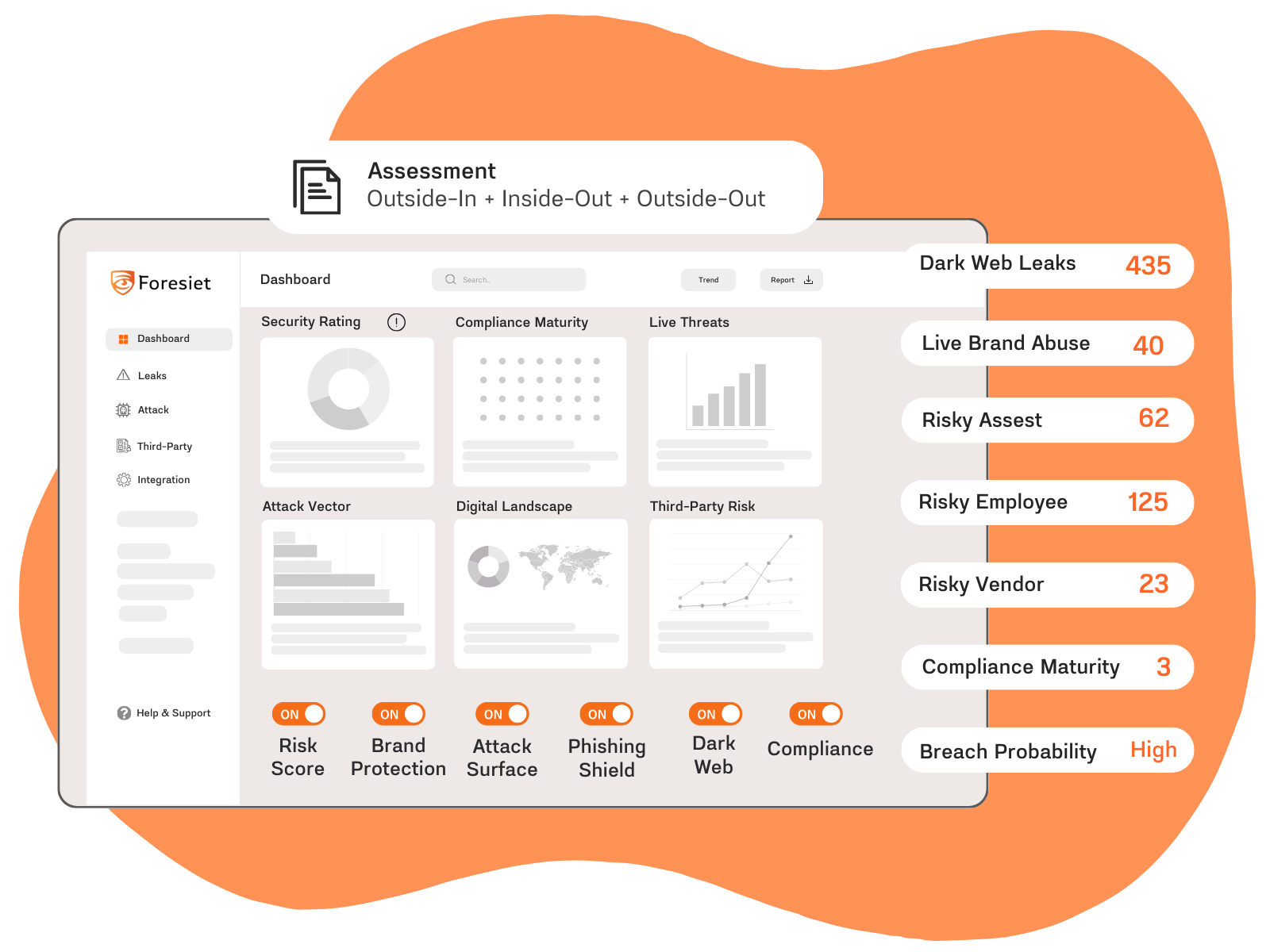The Unveiling of USDoD: A Cybercriminal's Identity and Its Global Implications

The Unveiling of USDoD: A Cybercriminal's Identity and Its Global Implications
In the world of cybercrime, few figures have reached the notoriety of the hacker known as USDoD, also known as EquationCorp. This elusive and infamous hacker has recently taken the world by surprise, revealing his identity as Luan G, a 33-year-old man from the state of Minas Gerais in Brazil.
This revelation has not only shocked the cybersecurity community but has also raised serious concerns about the international implications of cybercrime and the challenges in bringing such criminals to justice.

Social profile of USDOD

Underground forum profile
What is Doxbin ?
Doxbin is a notorious website that serves as a platform for sharing and distributing personal information, often without the consent of the individuals involved. The term "dox" refers to the practice of "doxxing," which involves publicly revealing private or identifying information about a person. On Doxbin, users post details such as names, addresses, phone numbers, email addresses, and other sensitive data, often with malicious intent.
Doxbin has been used by cybercriminals, hackers, and online trolls to target individuals for harassment, intimidation, or revenge. The site has a long history of being taken down and resurfacing, reflecting its resilience and the challenges law enforcement faces in shutting down such platforms permanently.
Because of its nature, Doxbin is heavily associated with illegal activities, and accessing or using the site can have serious legal and ethical consequences.
A Legacy of Infamy: USDoD’s Unprecedented Breaches
USDoD first caught the attention of global authorities and cybersecurity experts with a series of high-profile cyberattacks that have left a lasting impact. His most notorious act was the breach of a US-based API firm, National Public Data, which resulted in the leak of more than 3.2 billion Social Security Numbers (SSNs) online. This breach alone caused an estimated $3 billion in damages, making it one of the most significant data breaches in history.
Prior to this, USDoD was responsible for breaching the FBI's security platform, InfraGard, exposing the personal details of 87,000 members. InfraGard, a critical platform designed to protect national security by facilitating information sharing between the FBI and the private sector, was compromised under USDoD's digital assault, leaving a severe dent in the perceived impenetrability of U.S. law enforcement networks.
These breaches are just the tip of the iceberg. USDoD has been linked to several other data breaches and web scraping incidents that have compromised sensitive information on a massive scale. His actions have not only exposed the weaknesses in cybersecurity infrastructures but have also highlighted the growing sophistication of cybercriminals.
The Global Shockwave: Implications of the $3 Billion SSN Leak
The scale of the National Public Data breach, which resulted in the theft of over 120 million SSNs, is staggering. The compromised data didn’t just include SSNs but also personal and financial details that have since been used in numerous forms of identity theft and fraud. The financial and emotional toll on the victims is incalculable, and the breach has left a scar on the landscape of digital security.
The financial impact of the breach is estimated at $3 billion, a figure that underscores the profound vulnerabilities in the cybersecurity measures of major institutions. This incident has sparked widespread fear and panic, as individuals grapple with the fallout from having their most sensitive information exposed to the world.
The Brazilian Dilemma: Extradition and Legal Complexities
With the revelation of USDoD's identity as Luan G from Brazil, the international community is now faced with a complex legal and diplomatic challenge. Brazil's strict extradition laws, particularly those protecting their own citizens, present a significant barrier to the United States' efforts to bring USDoD to justice. Historically, Brazil has been known for its reluctance to extradite its nationals, especially when it involves cases with political or economic implications. The chances of Luan G facing trial in the U.S. are slim, to say the least.
This situation has ignited a broader debate about the effectiveness of international law in dealing with cybercriminals who operate across borders. The case of USDoD highlights a critical gap in global cybersecurity enforcement, where national sovereignty and legal protections can be exploited by cybercriminals to evade capture and prosecution. The United States has long struggled with denied extradition requests, and USDoD’s case could exacerbate diplomatic tensions between the U.S. and Brazil.
The Growing Threat of Cybercrime and the Call for Global Cooperation
The identification of USDoD as a Brazilian citizen has sent ripples through the cybersecurity community, government agencies, and the international legal landscape. His actions have demonstrated how cybercriminals can operate with relative impunity, exploiting legal loopholes and jurisdictional complexities to evade justice. The breach that he orchestrated has left millions of people vulnerable to identity theft, fraud, and other financial crimes, and it has highlighted the inadequacy of current cybersecurity measures.
USDoD’s case underscores the need for stronger international cooperation and more robust legal frameworks to combat cybercrime. As cybercriminals become more sophisticated and their attacks more devastating, the international community must find ways to work together to ensure that no hacker, regardless of nationality, can escape justice.
Past Hacks of USDoD: A Timeline of Cyber Devastation
The hacker known as USDoD, also known as EquationCorp, has been involved in some of the most significant and damaging cyberattacks of the past decade. Below is a timeline of his most hacks, detailing the targets, methods, and the massive impact of each breach.
The Equifax Breach (2016)
In 2016, USDoD targeted Equifax, one of the largest credit reporting agencies in the world. The breach exposed the personal information of 147 million people, including Social Security Numbers, birth dates, and addresses. The estimated damages reached $4 billion, as the breach led to widespread identity theft and a significant loss of consumer trust. The attack on Equifax remains one of the most consequential data breaches in history.
The Marriott International Hack (2018)
In 2018, USDoD struck again, this time targeting Marriott International. He gained access to the company’s guest database, compromising 500 million guest records. The exposed data included passport numbers, credit card information, and other personal details. The breach led to class-action lawsuits, significant financial losses for Marriott, and a major overhaul of the company’s cybersecurity practices.
The FBI Database Compromise (2020)
By 2020, USDoD had set his sights on the FBI, successfully gaining access to a sensitive database containing law enforcement information. The compromised data included details on ongoing investigations, posing a serious risk to national security. The breach not only disrupted investigations but also increased pressure on the FBI to strengthen its security measures.
The Colonial Pipeline Ransomware Attack (2021)
In 2021, USDoD was involved in a ransomware attack on Colonial Pipeline, a major fuel pipeline serving the Eastern United States. The attack disrupted the fuel supply, causing widespread panic and economic turmoil. The incident led to fuel shortages and heightened awareness of the vulnerabilities in critical infrastructure. Colonial Pipeline paid an estimated $4.4 million in Bitcoin as ransom, underlining the severity of the attack.
A Farewell to the Underground: USDoD's Final Message
In the wake of his identity being exposed on Doxbin, a notorious platform for doxxing, USDoD left a farewell message to his fellow cybercriminals. In it, he acknowledged the risks he took and the consequences of his actions. His farewell can be seen as a recognition of the end of his reign as one of the most feared hackers in the world. However, his departure from the cybercrime scene does not mark the end of the challenges he created.
As law enforcement agencies and cybersecurity experts continue to deal with the fallout of his actions, USDoD's legacy will serve as a stark reminder of the ever-present and evolving threat of cybercrime. His story is a call to action for governments, businesses, and individuals to prioritize cybersecurity, strengthen defenses, and collaborate on a global scale to prevent future breaches of this magnitude.
Final message;
“So congrats to Crowdstrike for doxing me, they are late for the party, intel421 Plus and a few other companies already doxed me even before the Infragard hack. I want to say thank you, it is time to admit I got defeated and I will retire my Jersey. Yes, this is Luan speaking. I won’t run, I’m in Brazil, the same city where I was born. I am a huge valuable target and maybe I will talk soon to whoever is in charge but everyone will know that behind USDoD I’m a human like everyone else, to be honest, I wanted this to happen, I can’t live with multiple lives and it is time to take responsibility for every action of mine and pay the price doesn’t matter how much it may cost me. This is not my end. Thank you, see you around. Don’t worry Brazilian authorities, I’m coming to meet you, I’m not a threat, in fact, I can do much for my country.”
Conclusion: A New Chapter in Cybersecurity History
The revelation of USDoD’s identity as Luan G, a Brazilian citizen, adds a new chapter to the annals of cybercrime history. His breaches have caused untold damage, both financially and emotionally, to millions of individuals and institutions. The challenges in extraditing him highlight the complex nature of international cybercrime enforcement and the urgent need for global cooperation.
As we move forward, the story of USDoD should serve as a warning and a lesson. Cybercriminals may hide behind their screens, but their actions have real-world consequences. The fight against cybercrime is far from over, and it will require the collective efforts of nations, organizations, and individuals to ensure that justice is served, and that such devastating breaches are prevented in the future.
About Foresiet!
Foresiet is the pioneering force in digital security solutions, offering the first integrated Digital Risk Protection SaaS platform. With 24x7x365 dark web monitoring and proactive threat intelligence, Foresiet safeguards against data breaches and intellectual property theft. Our robust suite includes brand protection, takedown services, and supply chain assessment, enhancing your organization's defense mechanisms. Attack surface management is a key component of our approach, ensuring comprehensive protection across all vulnerable points. Compliance is assured through adherence to ISO27001, NIST, GDPR, PCI, SOX, HIPAA, SAMA, CITC, and Third Party regulations. Additionally, our advanced antiphishing shield provides unparalleled protection against malicious emails. Trust Foresiet to empower your organization to navigate the digital landscape securely and confidently.
Protect your brand, reputation, data, and systems with Foresiet's Integrated Digital Risk Platform. 24/7/365 threat monitoring for total peace of mind.


July 10, 2025, 9 a.m.
